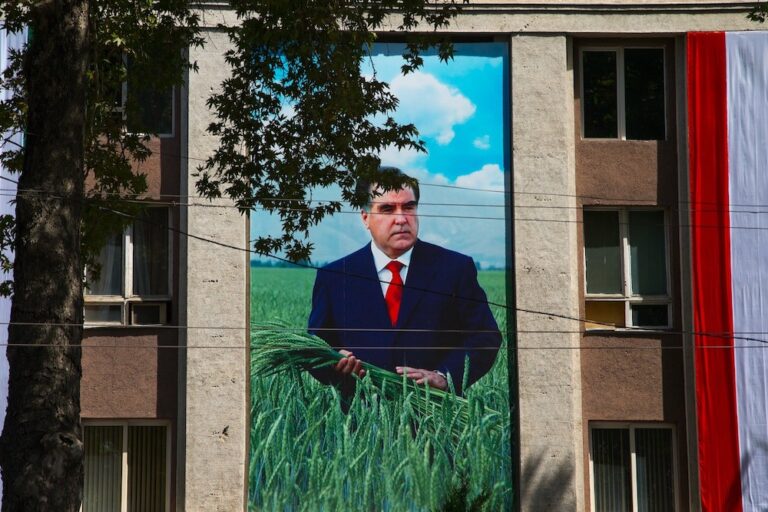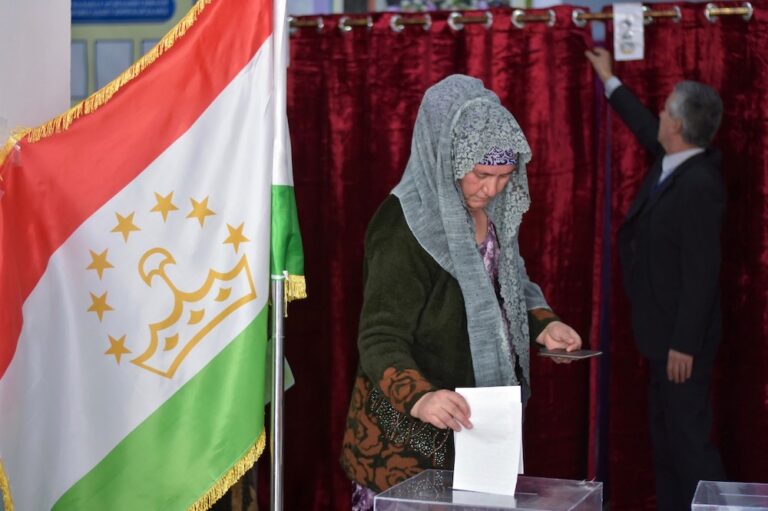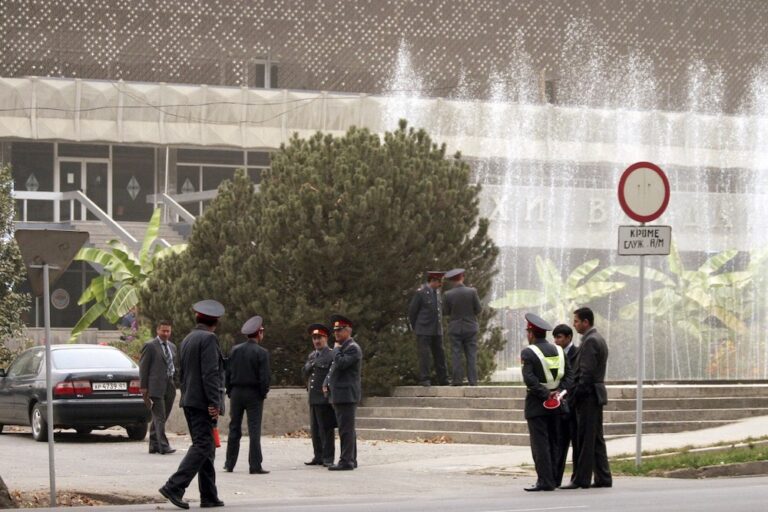(CPJ/IFEX) – The following is a 3 November 2006 CPJ press release: Government controls on news compromise vote in Tajikistan New York, November 3, 2006 – Repression of opposition and independent news media has compromised the fairness of Monday’s presidential election, the Committee to Protect Journalists said today. President Imomali Rakhmonov seeks a third, seven-year […]
(CPJ/IFEX) – The following is a 3 November 2006 CPJ press release:
Government controls on news compromise vote in Tajikistan
New York, November 3, 2006 – Repression of opposition and independent news media has compromised the fairness of Monday’s presidential election, the Committee to Protect Journalists said today. President Imomali Rakhmonov seeks a third, seven-year term in the balloting.
“We’re greatly concerned that Tajik authorities have deprived citizens of independent and diverse sources of news at a time when they are most needed,” CPJ Executive Director Joel Simon said. “Voters cannot make a valid and informed choice at the polls when they are kept in the dark about the candidates and their platforms.”
State-controlled television, the main source of news and information in Tajikistan, has covered Rakhmonov’s campaign extensively but gave very limited time to his four opponents, according to press reports and CPJ sources. Government electoral regulations allot each candidate 30 minutes of airtime on state television during the campaign, but Rakhmonov also received daily, uncritical coverage of his every public movement as president, according to international reports and election observers.
At least four opposition and independent newspapers have been forced out of print over the past two years, while the Ministry of Communications in October blocked domestic access to five popular news Web sites published from abroad, according to CPJ research.
The restrictive press climate has meant the four opposition candidates “are practically invisible in most areas” of the country, according to the Organization for Security and Cooperation in Europe, which is monitoring the election and issued a report on Monday.
Rakhmonov and his ruling People’s Democratic Party of Tajikistan appear firmly ensconced as the election approaches. During the year, parliament passed more than 40 amendments to its media laws, including one that required all non-state media outlets to obtain licenses from the Ministry of Culture.
The government has used its many levers of control in the weeks before the election, CPJ research shows. On October 7, the Ministry of Communications ordered Tajik Internet providers to block domestic access to the independent news Web sites Centrasia and Ferghana, and the opposition online newspapers Arianastorm, Charogiruz and Tajikistantimes. Anvar Mamadzhanov, a senior official with the Ministry of Communications, said the sites contain information that “undermines state media policy,” the independent Russian-language weekly Business and Politics reported.
On October 16, Communications Minister Said Zuvaidov told journalists at a Dushanbe press conference that access to the sites had been temporarily blocked for technical reasons and had been restored, according to international press reports. But CPJ sources in Tajikistan said that Arianastorm, Charogiruz and Tajikistantimes – the three opposition sites – remained inaccessible weeks after Zuvaidov’s assertion. Dododzhon Atovulloyev, the exiled editor of Charogiruz and Tajikistantimes, told the London-based Institute of War and Peace Reporting: “In the run-up to the election, the authorities don’t want the people of Tajikistan to know what’s going on in their country.”
The opposition print weeklies Nerui Sokhan, Ruzi Nav, and Odamu Olan, which were forced out of circulation in the past two years on alleged tax and technical violations, remained out of print in 2006. The Ministry of Culture banned the weekly Adolat, which had been published by the opposition Democratic Party, on September 29. A small handful of independent newspapers still operate, but most have very limited circulation, according to CPJ research.
No foreign broadcasts are accessible through either terrestrial television or FM radio in Tajikistan, according to CPJ research. In January, government regulators suspended the FM broadcasts of the British Broadcasting Corporation (BBC), saying it had not complied with new licensing regulations. In July, the BBC was formally denied a license to broadcast on the FM frequency.
CPJ is a New York-based, independent, nonprofit organization that works to safeguard press freedom worldwide. For more information, visit http://www.cpj.org


